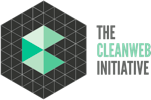Businesses know that efficiency means cost savings, and since increasing efficiency usually reduces waste and environmental impact, it can also have a positive effect on your sales. That’s because customers today are conscientious consumers who want to know that their buying habits aren’t causing harm, and in fact, that their choices are helping to make things in the world better, not worse. By marketing your products and services with an emphasis on your environmental efforts, whether directly to customers or B2B, you will appeal to the preferences of today’s buyers.
Energy efficiency is a good place to start looking for opportunities for eliminating waste across your business, and your investments in this area can provide an excellent way to show that your business cares about the environment. Installing good insulation, solar panels, low-energy lighting and using energy-saving devices and systems will reduce your electric bill while increasing your “green” image.
A number of large corporations have been making moves to use more renewable energy sources, and they’ve made big announcements to make sure their customers know about it. Companies like Walmart, Target, Apple, Costco, Kohl’s and Ikea top the list of solar producers and onsite installations as of 2015.
All of these companies promote their environmental efforts while they lower costs through efficiency. Walmart recently announced its goal to reach 50% renewable energy use by 2025, and Kohl’s has a comprehensive sustainability program including solar, electric vehicles, EPA Energy Star equipment, and LEED design and construction. Kohl’s program also points out the important role of water conservation and recycling. Again, these are efficiencies that reduce cost and environmental impact but also add a marketing boost.
The late Ray Anderson was founder and CEO of Interface, Inc., the modular carpet manufacturer. He was featured in a few documentaries, including The Corporation, to explain the environmental focus of his company. By 2009, Anderson estimated that Interface was more than halfway to its milestone of zero negative impact on the environment by 2020, a project called Mission Zero. They’re achieving their goals by redesigning their processes and inventing new technologies to eliminate waste in their production cycle. Meanwhile, they want their customers to know all about it, and their business is booming.
Companies can also optimize their operations by outsourcing certain aspects of their business. For instance, outsourcing HR duties like payroll and benefits to a Professional Employer Organization (PEO) can help employers focus on their core business distinctions rather than spending time filling out paperwork. “Not only does using a PEO help a company control costs, but it streamlines the efficiencies of operations across the whole business,” says Layne Davlin, founder and CEO of Einstein HR.
There exists a profitable cross-section between environmentalism and marketing, as a number of these examples show. So the next time you’re examining your business to find areas to optimize, keep in mind that those efficiencies could also help the environment — and that’s something your company can brag about.




